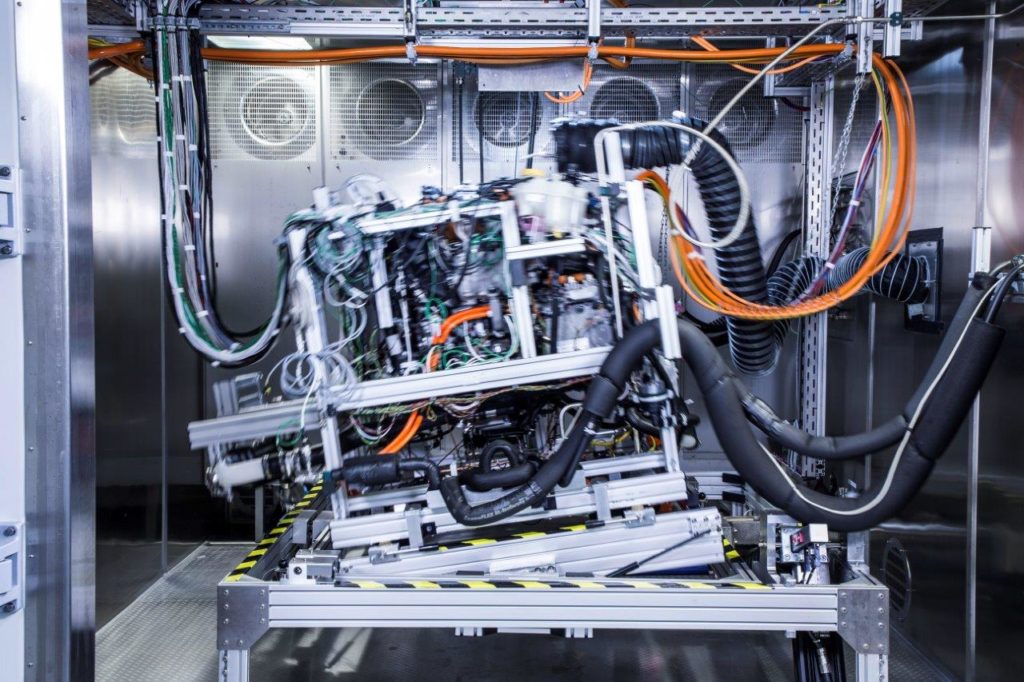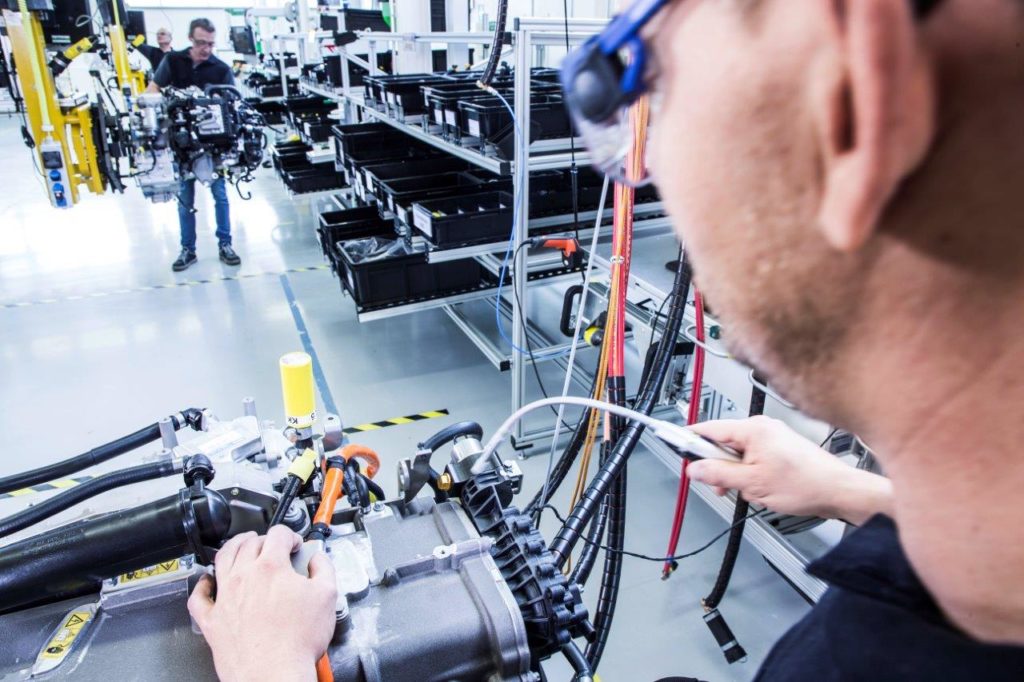Daimler, Volvo shed light on new fuel cell joint venture
NABERN, Germany – Longtime truck-making rivals Daimler Truck AG and Volvo Group announced the formation of a joint venture this morning, which will see them jointly develop hydrogen fuel cells for use in both truck brands, and potentially others.
Daimler is folding its expertise, ongoing fuel cell-related activities and intellectual property rights into the new joint venture, and Volvo will buy a 50% stake for $600 million Euros (USD$650.8 million). Both companies will further invest “nine-digit” figures into the initiative, Martin Daum, chairman of the Board of Management at Daimler Truck AG said during a conference call with media this morning.

“Partnership is the new leadership,” Volvo Group president and CEO Martin Lundstedt added, referring to the unlikely pairing. Both executives acknowledged the partnership will speed up development of fuel cell technology in commercial applications, which will help the truck makers meet their Paris Agreement obligations, including the end of production of internal combustion engines by 2050.
“We will, of course, remain competitors in all other areas.”
Martin Lundstedt, Volvo Group
The joint venture will be based in Nabern, Germany, where most of Daimler’s fuel cell activity is currently located, but production facilities will exist at a “subsidiary” in Vancouver, B.C., as well as in Germany, Daum said. The JV will operate as an independent and autonomous entity, the companies said, and will reduce development costs for both companies while accelerating market penetration.
“We will, of course, remain competitors in all other areas,” Lundstedt stressed. “But we share the same vision of a transformation towards sustainable transportation solutions. By working together, we are able to move faster, which is good for our customers and more importantly, to society as a whole.”
The joint venture is non-binding and still subject to regulatory approval.

Hydrogen fuel cells are seen as complementary to battery-electric technologies in commercial trucks, especially in longhaul and heavy applications, since energy can be produced onboard the vehicle.
Daum said today’s announcement is among the highlights of his 30-year career. “I dare call it a historic day for trucking,” he said.
The goal is to move fuel cell production to high volumes by the mid-2020s, and full-scale production about 10 years later.
“We are not starting from scratch today at all,” said Daum. “Rather we are building on a reliable, mature foundation. We have a long history of research and development of this technology.”
Daum said the partnership should also serve as a “call to action” to other stakeholders, who will be needed to help roll out the infrastructure needed to support hydrogen fuel cell-powered trucks.
“We are not able to accomplish this task alone,” said Daum. “Today, we have very strongly and jointly made the first bold move to get us going.”
The JV may also be willing to supply its fuel cell technology to other manufacturers.
“The joint venture company will produce a fuel cell that can go into Daimler trucks and Volvo trucks, and can go in other vehicles as well and off-highway usage such as power generation,” Daum explained. “We want to establish here, a company that is not just two shareholders – why not an entire industry? Our clear target is to have the most capable fuel cell system in the market.”

Asked if the truck makers were motived by competitive pressures from upstart manufacturers looking to bring hydrogen-powered trucks to the market, Daum retorted “We put as much competitive pressure on others as they put on us.”
Pre-series production is expected to begin around 2024-2025, but it will be the mid-2030s before the systems enter series production, Daum predicted. That’s still plenty of time before the Paris Agreement requirements.
The joint venture will initially consist of about 250 employees. Lundstedt, who like Daum has been in the industry for about 30 years, said he’s excited about the potential.
“Fuel cells have always been 10 years away,” he said. “For the first time in my career, they’re sooner than 10 years away.”
Added Daum: “I’m very optimistic that 20 years from now, this will cover the entire market and 95% of applications.”
Have your say
This is a moderated forum. Comments will no longer be published unless they are accompanied by a first and last name and a verifiable email address. (Today's Trucking will not publish or share the email address.) Profane language and content deemed to be libelous, racist, or threatening in nature will not be published under any circumstances.